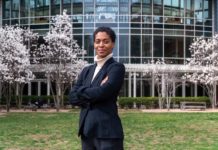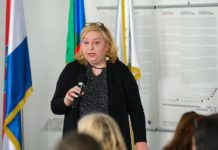For Velma Šarić, Founder and President of the Post-Conflict Research Centre (PCRC) in Sarajevo, a society in which people no longer perceive diversity as a source of conflict but as a basis for progress represents the basis of the process of renewing a culture of peace. The Post-Conflict Research Centre is aware of the power of creative multimedia, so the type of content they produce and utilize is meant to propel dialogue, transform public opinion, elevate underrepresented voices, and inspire hope, intercultural understanding, and cooperation among people living in post-conflict and divided societies.
According to Šarić, by combining storytelling, historical dialogue and memory, witnessing, and intercultural cooperation, PCRC aims to produce and promote projects, content, and works that represent or advocate acts of justice.
We consider such process important as it aims at (re)building relationships based on trust through mobilization and audience engagement. Film, photography, the arts, and other multimedia reinforce and encourage critical inquiry and questioning which, in turn, encourage peacebuilding processes.
Today, the countries of the Western Balkans are parliamentary democracies, but also fragile states, Šarić continues. Tensions between different ethnic, cultural and religious groups, if left unaddressed, pose a threat to stability and peace in the region.
There is a general lack of a shared vision and a sense of belonging to a multicultural and multireligious society among citizens of different ethnic backgrounds, which, together with contrasting narratives of past and war events, political opportunism, segregation, weak rule of law and discrimination against minorities, hamper mutual understanding and trust. The process of transitional justice in Bosnia and Herzegovina and the region is still present, but, I am afraid, without the true participation and support of the ruling political structures, it is very slow and almost unattainable.
Despite the above, Šarić believes that reconciliation is possible in this area, and sees potential in young people and education, especially in local and rural communities.
The fact is that the human losses from the past war are enormous, but we must find a model to get out of this vicious circle of division and hatred 25 years later. I really believe that there was not enough talk in the Balkans about previous events, including the Second World War, and then things repeated themselves. In my opinion, young people are crucial, together with social networking and education, but also access to these topics on a global level. The world has become really small and if we look for excuses that there is no solution and hope, we will lose new generations of young people.
The experiences of the Post-Conflict Research Centre in working with associations from Croatia and Serbia are positive, and together with a wide network of partners and associates from the region they have been trying for years to create peacebuilding initiatives and work on the prevention of future conflicts. As for the experiences in working with the governments of other countries, they are unfortunately very similar to the experiences in Bosnia and Herzegovina, without enough will and desire to resolve the issues of dealing with the past at the state and regional level, emphasizes Šarić.
It is really difficult to imagine that without the will of the political, but also the academic, media and civil sector, we will be able to create sustainable and peaceful societies in the future. Here I would especially emphasize the problem of youth education and the fact that there is no comprehensive system of formal education that would educate our young people about the conflicting past in a way that promotes tolerance, empathy and coexistence. Although NGOs through the informal education sector have done much in this area, major changes are not possible until recent history topics enter classrooms in the right way. All of us, from individuals through families and society, bear moral, individual and collective responsibility for conflict prevention and peace building.
For many years, in cooperation with the OSCE Mission to Bosnia and Herzegovina, the Post-Conflict Research Centre has been implementing the On the Margins project. It is a multimedia, educational program that works to challenge negative stereotypes about Bosnia and Herzegovina’s Rroma community. The project consists of a photographic exhibition, educational workshops and an upcoming documentary. The portraits and personal testimonies presented as part of this project stand in stark contrast to widely held Rroma stereotypes and challenge the viewer to re-examine their own viewpoints about this diverse community. When non-Rroma individuals begin to re-examine their own beliefs and behaviour toward the Rroma, they then sow the seeds for a wider cultural and behavioural shift that can lead to a more inclusive society for all. In the interest of providing opportunities to young, local talent, PCRC commissioned up-and-coming Bosnian photographers Armin Durgut, Aldin Fafulović, and Vedran Živković to tackle the project alongside two international photographers, Mirko Pincelli and Brad Hobbs.
What is the cost of working in post-conflict settings?
The leading issue for individuals working on the frontlines of post-conflict resolution and recovery after experiencing communal and individual trauma is the cost of working in post-conflict communities. The training, which they are organizing together with Stephanie Arel, a visiting researcher of the 9/11 Memorial & Museum, offers a chance for individuals working on the frontlines of post-conflict resolution and recovery after experiencing communal and individual trauma to make a deeper connection with others invested in similar work and to explore methods of self-care, understanding the mechanisms behind empathy, which are required for this work.
Personally, I think that the cost of working is very high and implies a large amount of courage and dedication to work, but also sacrifice in private life. Unfortunately, we can add to this the infamous data on the growing number of attacks on human rights and peace activists, both physical and verbal and online attacks. During 2019, as many as 300 people were killed worldwide for their work in this area.
In post-conflict societies, the topic of migration is unavoidable. Germany is home to one of the largest populations of the Bosnian and Herzegovian diaspora in the world. This diaspora represents various waves of migration to Germany and includes migrants who arrived during the former Yugoslavia, former refugees who have since been integrated into German society, as well as newer economic migrants seeking new opportunities in Germany’s stable economy. The Bosnian diaspora in Germany is not only diverse, but also lively and full of potential contributions to both Germany and Bosnia and Herzegovina. Members of this population include several generations, ethnicities and different levels of education, as well as professional affiliations – from hospitality and tourism to successful entrepreneurs and high-ranking managers in internationally recognized companies. There are even those who have run for or held political positions.
Although it is very difficult to compare the migration of Bosnia and Herzegovina’s citizens to Germany over several decades with the current migration in Europe, the Bosnian diaspora in Germany is definitely a very positive and useful example of the integration of migrants into a modern society.












